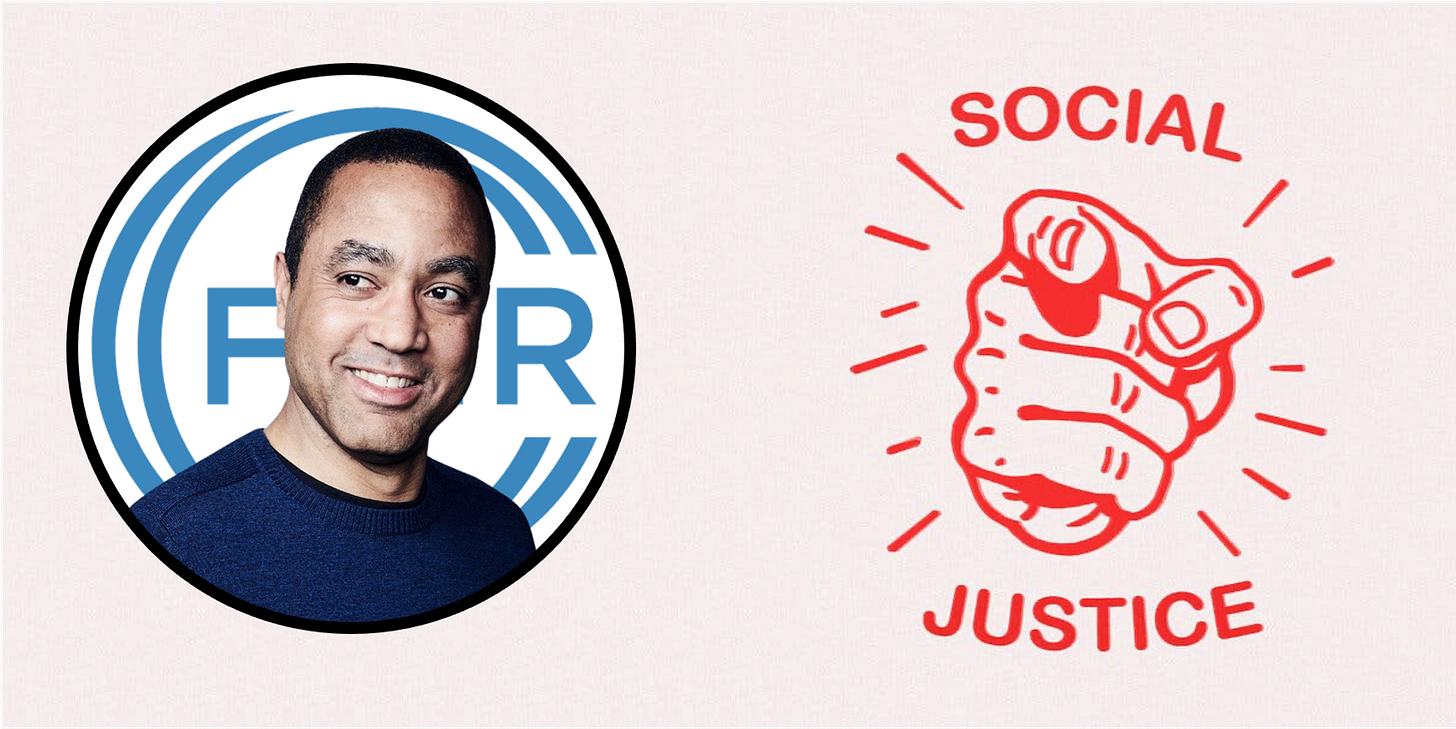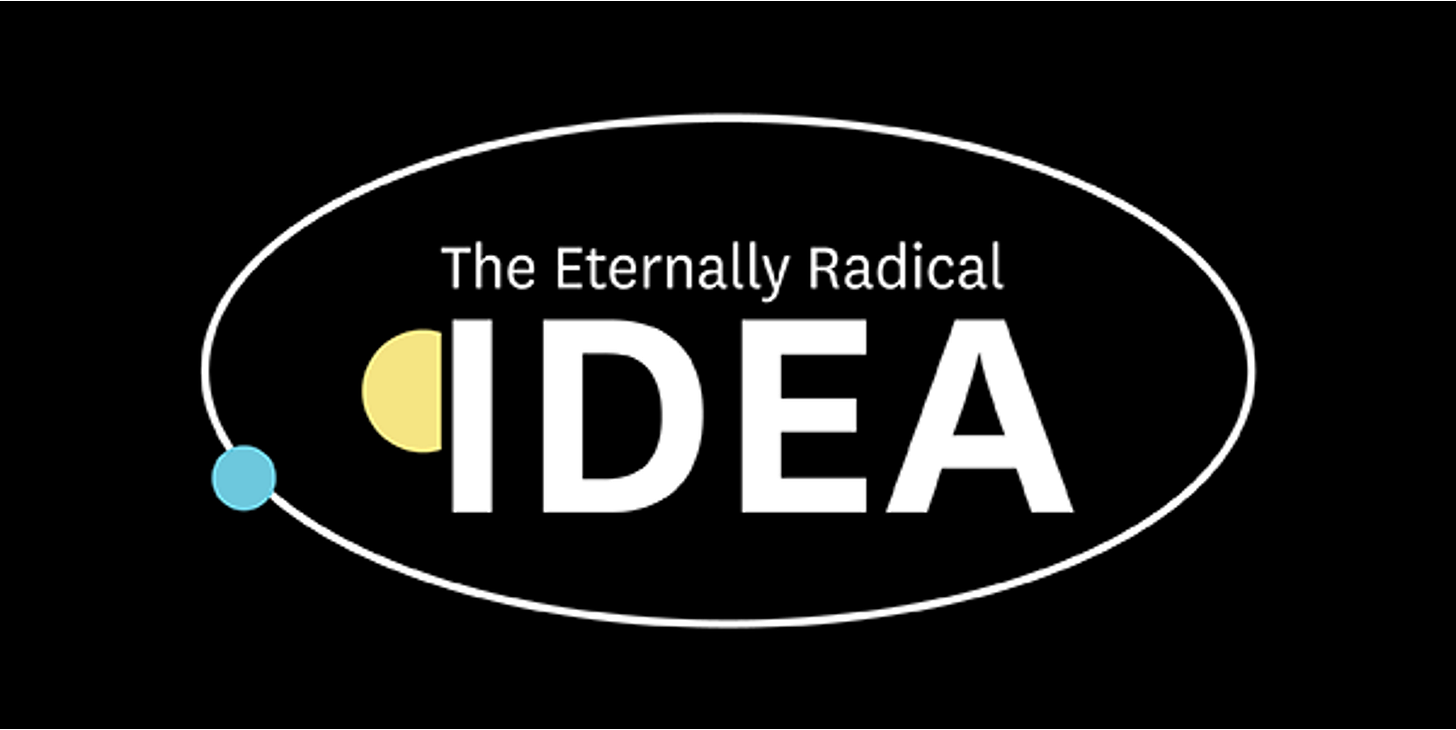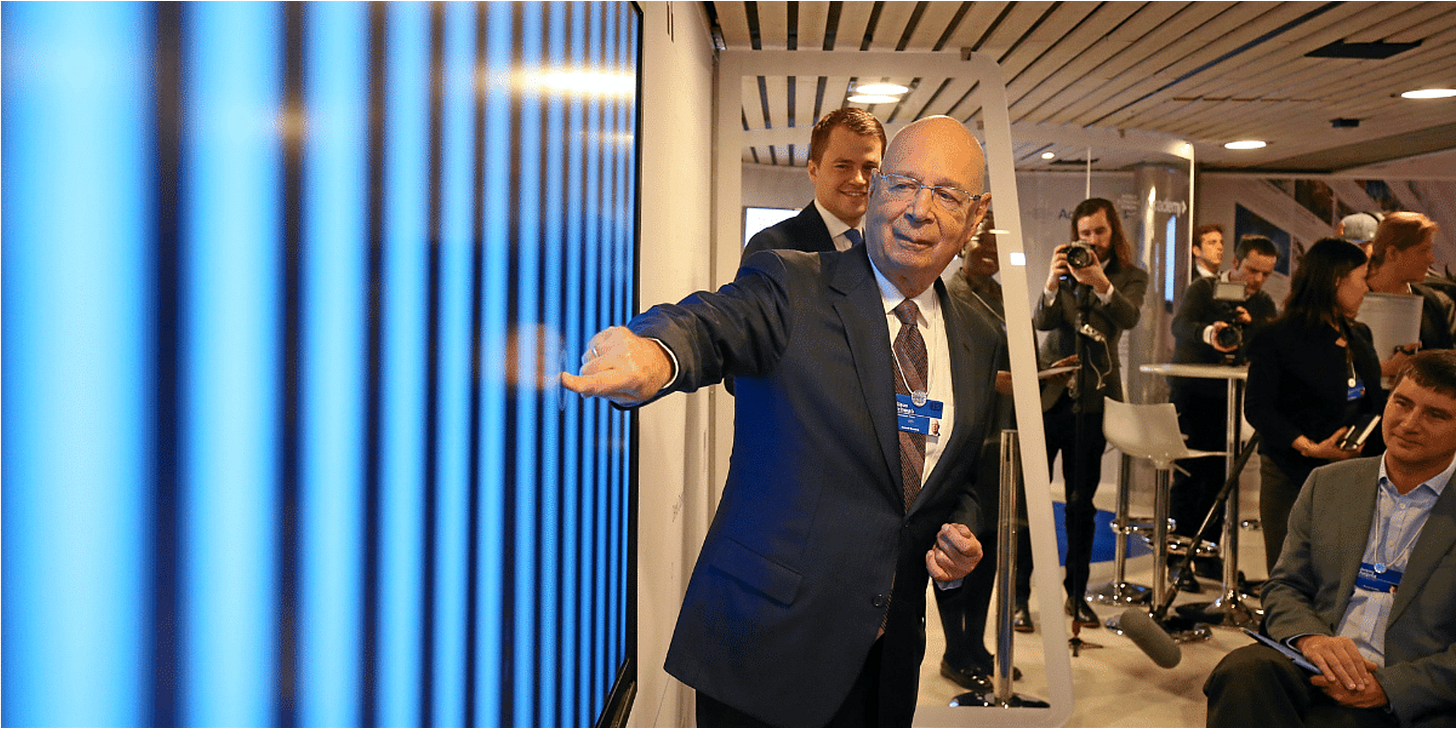For audio versions of our FAIR News and FAIR Weekly Roundup newsletters, subscribe and listen to our FAIR News Weekly podcast here.
FAIR Turns One
A year ago last Friday (March 4th), the Foundation Against Intolerance & Racism (FAIR) launched with a simple but ambitious mission: to advance civil rights and liberties for all, and promote a common culture based on fairness, understanding, and humanity.
What It Means To Be Pro-Human
This week for our Advisor Spotlight series we highlight FAIR Advisor Inaya Folarin Iman, a Britain-based print and broadcast journalist and founder of the Equiano Project, an organization dedicated to facilitating real and productive conversations on difficult topics.
Iman is worried that our culture’s current “racial fixation,” as she calls it, isn’t actually helping improve anyone’s life, including those of racial minorities.
I've not seen evidence that people have become more understanding. I've not seen any evidence that education has improved amongst poor black people. I've not seen any evidence that this worldview has produced anything good, whereas there is a ton of evidence that the pro-human perspective has been successful.
On her new weekly television show “The Discussion” on GBN, Iman is able to delve deeper into British politics and ask important questions such as: What is race? What does it mean? Where does it come from? And how did it become such a focus?
For the New York Times, FAIR Advisor John McWhorter discussed the recent cancelling of Dr. Jeffrey Lieberman, a professor at Columbia University and world renowned psychiatrists, for his tweet about a dark-skinned American model of South Sudanese descent that stated, “Whether a work of art or freak of nature she’s a beautiful sight to behold.”
Many people took issue with his use of the word “freak,” suggesting it had racist connotations. In response to social backlash, Lieberman resigned from his executive director position at the New York State Psychiatric Institute, was suspended by his university, and will no longer serve as psychiatrist in chief at New York-Presbyterian/Columbia University Irving Medical Center.
While McWhorter believes the tweet may have reflected “poor judgment,” he says Lieberman’s subsequent suspension, dismissal, and resignation “is a disproportion of punishment to crime.” He states:
There’s something amiss if we’re now at the point that someone’s career is to be permanently tarnished and perhaps ended based on a passing error, which started as a misguided attempt at praise and which has been profusely apologized for. We must assess what the actual purpose of this kind of language policing is.
For Discourse Magazine, FAIR Advisor Erec Smith wrote about rhetoric—what it is, why it fell out of favor as an academic subject, and why in the last 50 years it has been making an “academic comeback” as a distinct discipline.
Smith covered Plato’s two views of rhetoric—as a means to flatter or persuade. Plato also viewed the mastery of rhetoric as being “dangerous in the wrong hands” due to its ability to deceive. Smith explains that, in order to wield rhetoric responsibly, it is important to understand that while rhetoric is “necessary for conveying the truth,” it must also be viewed as “subordinate to that truth in every way.”
Smith proceeds to offer several reasons for studying rhetoric, describes the distinction between subjective and objective truth, and explains how a renewed focus on studying rhetoric may “help us remedy our societal ills of miscommunication and misunderstanding.”
For The Chronicle of Higher Education, professors Amna Khalid and Jeffrey Aaron Snyder described why supporting academic freedom isn’t just important for the pursuit of truth, but also for free expression.
Khalid and Snyder have previously argued for expanding or “reorienting” the “telos of higher education from ‘truth’ to ‘critical inquiry,’” as they believe it will help “broaden support for academic freedom.” But some scholars, like philosopher Michael Veber, have taken serious issue with that proposal, even going so far as to call it “insane.”
Khalid and Snyder claim that some questions, such as those concerning important historical events, cannot be reduced to a simple “true” or “false” format. They explain:
Regarding World War II and Nazi Germany, here are just a few questions historians continue to grapple with: To what extent was Hitler·s incursion into Poland driven by premeditated expansionist aspirations? Why did so many ordinary people participate in the Holocaust? How did Britain navigate the ethical pitfalls of joining forces with Stalin to forge an alliance against Hitler?
Furthermore, the authors believe that there are “many good reasons to value free speech” well beyond the pursuit of truth that they claim would fall under the heading of “self-expression,” such as promoting viewpoint diversity and independent thinking.
For the Foundation for Individual Rights in Education (FIRE), Greg Lukianoff and Nadine Strossen wrote Part 12 of their “answers to bad arguments against free speech” series. In this installment they address the statement: “I believe in free speech, but not for blasphemy.”
Strossen explains how “blasphemy” is “the stigmatizing term for expression that contradicts a prevailing religious orthodoxy.” Because of this, it is not only antithetical to the rights to individual freedom outlined in the US constitution, but it is “also antithetical to democracy and the search for truth.”
Lukianoff explains how ”everyone — literally every person reading this article — is a blasphemer to someone else.” In order to avoid the constant religious wars and persecutions in Europe in the 1500s and 1600s, the First Amendment guaranteed the “freedom to practice any faith and be free from the coercion of a state-established religion.” According to Lukianoff:
Those who argue for enforcement of blasphemy laws may not realize it, but they’re asking for the government to enforce the norms of a religion. Moreover, if we punish blasphemy that “provokes” a violent response, as some suggested in the wake of “The Innocence of Muslims,” we create a dangerous incentive for individuals to respond violently to the blasphemy they’d like to see censored.
In the Economist, their editorial board wrote about how “Pushback at cancel culture is leading to new educational initiatives.” They described how a certain type of intellectual orthodoxy on American college campuses is causing some students to leave elite liberal arts colleges for religion-oriented colleges. In a viral blog post, student Jane Kitchen described the lack of intellectual inquiry and cultural virtue-signaling on campus—following a pattern in recent years of colleges yielding to radical student activism.
A report by the Legatum Institute found that half of the students in elite American universities felt the need to self-censor, and that from 2010 to 2018 spending on student services and administration rose faster than spending on actual instruction.
These illiberal trends in universities may explain the enthusiastic response to the launch of the University of Austin (UATX), a college founded on resisting identity politics that will begin accepting undergraduates in 2024. But until then, students are viewing religion-oriented colleges as an appealing alternative.
For Quilette, William Malcolmson wrote “The Problem with the Diversity Dividend,” which outlined the corporate trend towards “Woke Capitalism” and how it undermines smaller players in the market.
According to Malcolmson, when the largest and most powerful corporations bend to the political demands of “Corporate Social Responsibility,” this creates capital burdens and barriers to entry for small businesses. He calls this phenomenon the “diversity dividend,” which he defined as “the supposed financial benefit derived from a workforce that represents different racial, sexual, and gender minorities in predetermined ratios.”
Malcomson details a number of problems this can create, such as employers who prefer to hire based on “equality of opportunity” rather than “equality of outcome” that can be punished by regulators who require that they publish diversity data. This represents a shift away from a liberal market and towards “a species of crony capitalism” that benefits big corporations and hurts small business, paving the way for oligopolies to prevail.
Join the FAIR Community
Become a FAIR volunteer or to join a FAIR chapter.
Join a Welcome to FAIR Zoom information session to learn more about our mission, or watch a previously recorded session in the Members section of www.fairforall.org.
Take the Pro-Human Pledge and help promote a common culture based on fairness, understanding, and humanity.
Join the FAIR community to connect and share information with other members.
Share your reviews and incident reports on our FAIR Transparency website.















Since I do not subscribe to the NY Times, which is behind a paywall, I am unable to read Dr. McWhorter’s opinion piece about the cancelling of Dr. Jeffrey Lieberman. Is it possible to reproduce this article in another form?